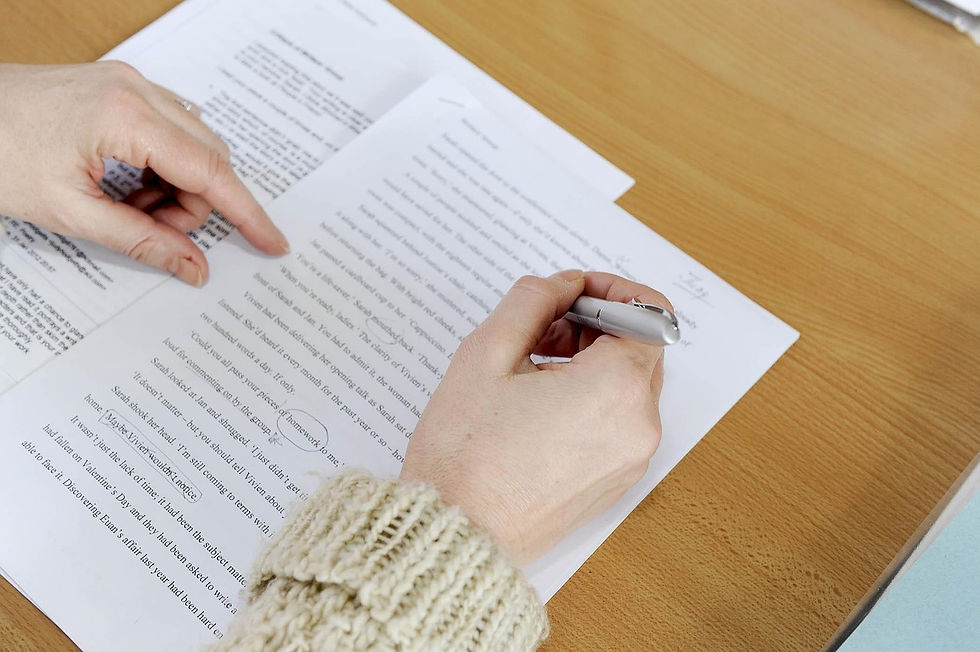Becoming a Better Writer Through Journaling
- Yvonne
- Mar 14, 2018
- 3 min read
Updated: Oct 5, 2020

No one becomes a great writer or author in one day, just like that. It takes practice -- and lots of it -- to be on the path towards becoming a successful author. And so we come to the topic of today's article - the importance of having a journal and keeping it constantly filled up and active. Here are some tips on the best ways to keep a journal to improve your writing.
Write constantly on your journal.
Make it a habit. Observe people around you. Write down strange words or sounds you hear. Write down any music or lyrics of a song you hear that appeals to you. Write down any random thought that comes to you. You'll be surprised at how much that 'random' thought will come in handy when thinking about your characters, plot, or settings for your work.
Even if you think what you're writing makes no sense, write it anyway. Write your thoughts about things you see around you. Don't censor, or try to re-word to please 'readers', just write. Think about the things you hear, and write, say, a random explanation for what you hear... something different. Don't think it may sound silly, just think about something abstract and somehow connect it to what you hear. This'll teach you how to have different interpretations for the things you hear or read, so that, when writing your fiction, you'll be able to implement the skill of giving your readers room for their own interpretations about whatever circumstance you present to them in your work. No single interpretation is better or more accurate than the other.
Don't be passive
Try not to be passive when describing your thoughts. Slather your scribblings with descriptive words -- words that paint a picture rather than simply make a statement or observation. Good fiction writers don't tell a story, they show -- painting a picture for the readers to capture, envision, and live through.
Write down inspiring quotes
Get quotes from books, magazine, Internet, or anywhere else. These quotes can go a long way in helping you formulate strong characters, plots, themes, and so on. Whenever you read a literary work (or any genre work), keep your journal handy for whatever 'speaks' to you from what you're reading. Whatever you find disturbing, challenging, outrageous, exciting, write them down. Focus on how the author achieves this feeling with their words and descriptions, and write them all down.
Make the dictionary and thesaurus your best friend
Every aspiring writer should have these in their car, bedroom/living room, mobile phone and/or reading device. If you come across an interesting word you've never heard before or that simply appeals to you, write it down, look it up after, and then find synonyms for it. A particular word might not make sense when used in a circumstantial sentence, but its synonym might work just perfectly.
Discover your writing style when you journal
Journaling allows you to discover your strengths, weaknesses, areas of improvement, and a lot more. When you continue to journal constantly, your confidence in your writing will improve, and you'll learn to step out of the box.
If you are a 'beginner-writer', journaling is a great way to get your writing skills in motion. If you've been in the game for a while, there's no such thing as too much practice (or too much writing). Get on the wagon as well and keep journaling. It'd be beneficial to keep a journal for writing improvement separate from your regular personal journal or diary, but it's ultimately up to you. There are different journals out there, including online journals, mobile journals, and the old-school paper journals. Whichever one suits your lifestyle or preferences, you'll certainly find.
For beginners, starting the writing process may seem a little challenging. Try starting a few entries as though you were writing a letter to a person, or to yourself, or as a news reporter. Remember, don't aim at first for precision, accuracy or whether or not what you're writing 'makes sense'. Just write (or type). Your journal is your personal document not meant to be 'submitted' or proofed by another person (unless, of course, you desire to share it). So with this in mind, write with no rules whatsoever, knowing that no one can criticize your work without your consent. Your journal is meant to get you in the habit of constantly writing and gradually getting better at it.
Remember that lots of practice makes perfect, so keep journaling!






Comments